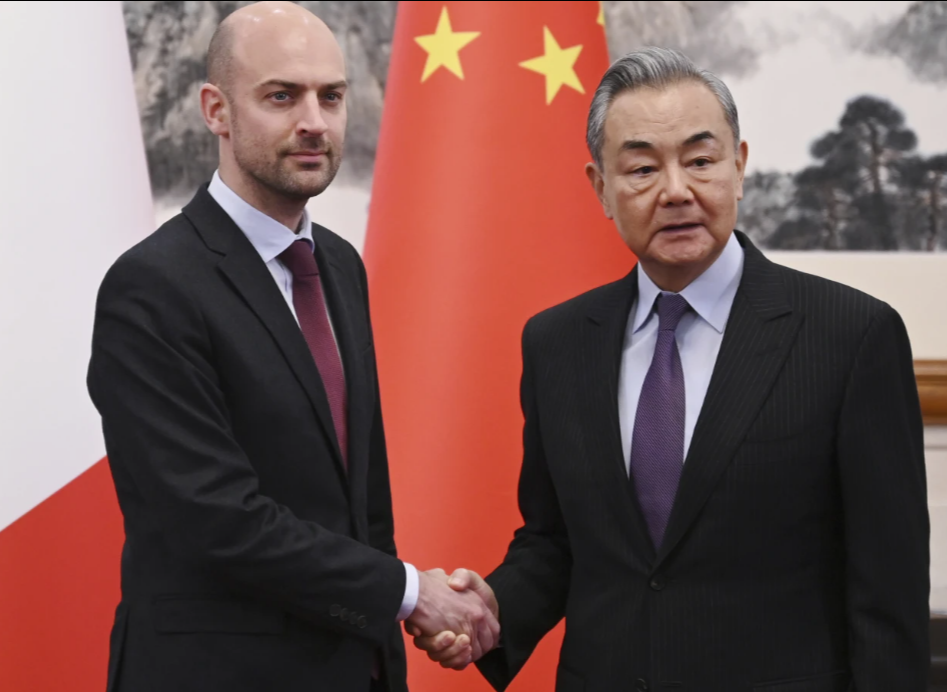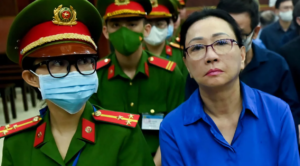French Foreign Minister Jean-Noël Barrot arrived in China for a two-day visit on Thursday, engaging in discussions with his Chinese counterpart on issues such as Ukraine and long-standing trade disagreements between China and Europe.
While no immediate breakthroughs were reported, both parties expressed optimism about the state of their relationship.
Barrot met with Chinese Foreign Minister Wang Yi, who emphasized that both nations should prioritize multilateralism over unilateral actions and work towards mutual benefits and win-win outcomes, rejecting decoupling and isolation. This sentiment closely mirrors China’s critique of U.S. foreign policy and the broader Western-led political order.
Later, Barrot held talks with Premier Li Qiang, who highlighted the growing instability and uncertainty in the world. Li emphasized that, as two independent and responsible major countries, China and France should strengthen cooperation to bring more stability to their bilateral relations and to the global landscape.
Barrot replied that the world is currently facing difficult times, with many key principles, especially multilateralism, being undermined.
Barrot stated that a new Europe is quickly taking shape, guided solely by the principle of strategic autonomy. He mentioned that this emerging Europe is making significant investments in defense and energy, just before reporters were asked to leave the room.
On Friday, Barrot is set to travel to Shanghai to meet with local officials and business leaders.
France has consistently supported Ukraine in its battle against Russia’s invasion, while China has backed Russia diplomatically and helped sustain its economy by purchasing Russian natural resources. Barrot’s visit presents an opportunity to assess China’s stance on Ukraine, particularly ahead of an important French-hosted meeting on the possibility of a peacekeeping force for the country.
The talks come amid growing tensions between the U.S. and Europe over their differing approaches to supporting Ukraine, with Washington increasingly viewed as aligning with Moscow.
French President Emmanuel Macron mentioned on Wednesday that a proposed European military force could potentially be deployed in Ukraine as part of a future peace agreement and could also “respond” to any Russian aggression.
Europe has long criticized China for unfair trade practices, claiming they force European companies to form partnerships with Chinese firms, share business strategies, and contribute to China’s substantial trade surplus.
The two sides also issued a joint statement reaffirming their commitment to climate change cooperation, celebrating the 10th anniversary of the Paris Agreement. They stressed that the agreement’s long-term goals require political will to foster international collaboration in combating climate change and protecting biodiversity and ecosystems.
China remains the world’s largest producer and consumer of fossil fuels, particularly coal.
Under the administration of former U.S. President Donald Trump, the U.S. began the year-long process of withdrawing from the 2015 Paris Climate Agreement. Additionally, the Trump administration formally pulled out of both climate and foreign aid programs and notified global financial institutions of its exit from the international climate Loss and Damage Fund. In its first 50 days, the Trump administration made significant cuts to funding for environmental justice, foreign aid, climate change efforts, and diversity and inclusion initiatives.













